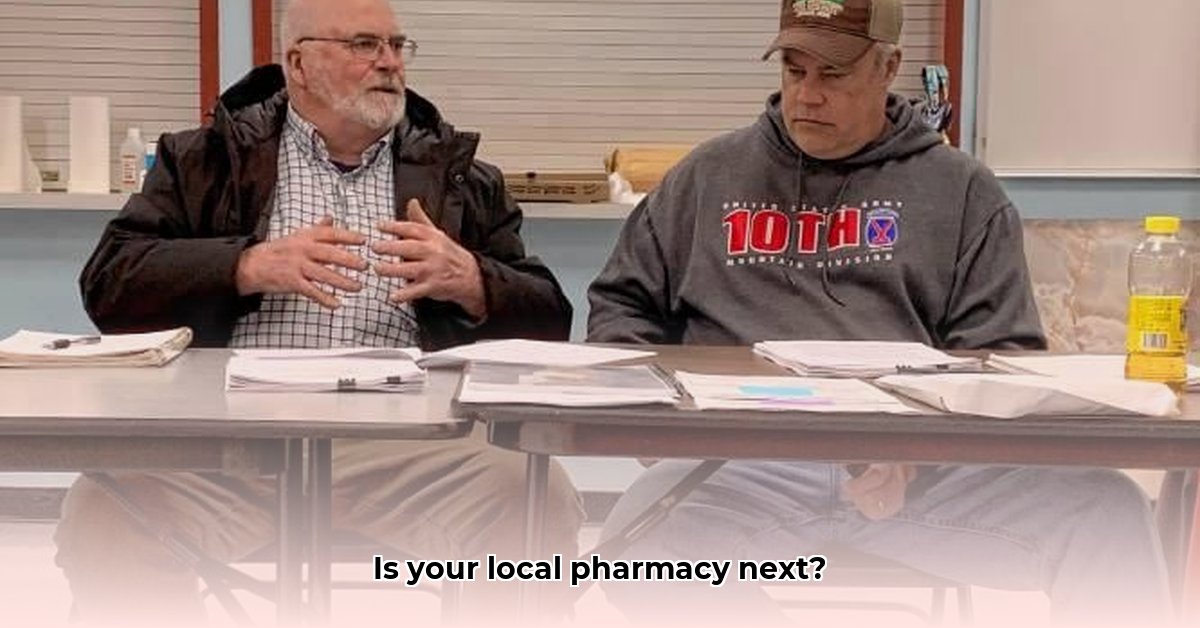
Warner Pharmacy NH: A Local Tragedy Reflecting a National Crisis
The quiet closure of Warner Pharmacy in New Hampshire serves as a stark warning, highlighting a systemic crisis threatening independent pharmacies nationwide. More than just the loss of a local business, it represents a significant blow to patient access, particularly in rural communities. This isn't an isolated incident; it underscores a broader problem impacting the accessibility and affordability of essential healthcare. The story of Warner Pharmacy provides a microcosm of the larger fight for the survival of independent pharmacies facing unfair payment structures and the overwhelming power of Pharmacy Benefit Managers (PBMs).
The Story of Warner Pharmacy: A Fight for Survival
Warner Pharmacy, a long-standing community institution, was known for its personalized care and attentive service, a stark contrast to the impersonal nature of large chain pharmacies. However, despite its dedication to patient well-being, the pharmacy succumbed to insurmountable financial pressures. The owner, who chose not to be interviewed for this piece, likely faced the impossible task of balancing the books each month against a system rigged against the financial success of independent pharmacies.
The Invisible Squeeze: Pharmacy Benefit Managers (PBMs)
A significant challenge for Warner Pharmacy, and many others like it, was the pervasive influence of Pharmacy Benefit Managers (PBMs) – the middlemen between insurance companies, drug manufacturers, and pharmacies. While PBMs claim to reduce drug costs for consumers, their practices frequently harm independent pharmacies. PBMs often reimburse pharmacies less than the actual cost of dispensing a prescription, creating a "reimbursement gap" that makes profitability an uphill battle. This is akin to paying for groceries and only receiving partial reimbursement, making financial survival a constant struggle.
Furthermore, PBMs employ "clawbacks," retroactively deducting money from pharmacies' already-thin margins after prescriptions have been filled. This unpredictable practice creates intense financial instability, rendering long-term planning virtually impossible. This unpredictable income stream is one of the most significant challenges to the financial survival of independent pharmacies. Warner Pharmacy likely faced this financial instability acutely, making survival unsustainable.
The Pandemic's Perfect Storm
The COVID-19 pandemic exacerbated the pre-existing vulnerabilities of independent pharmacies. The surge in medication demand, coupled with disruptions to the supply chain, placed an immense strain on resources, pushing many pharmacies, including Warner Pharmacy, closer to closure. This wasn't just about increased workload; it was the added uncertainty and mounting pressure that proved too much to bear.
What Happens When a Pharmacy Closes? A Community's Loss
The closure of Warner Pharmacy has direct and immediate consequences for patients, especially in rural areas. Increased travel distances and time are barriers to timely medication access for many, impacting health outcomes and delaying crucial treatment, particularly for individuals with chronic conditions. The loss extends beyond geographic inconvenience; the closure represents the loss of personalized care and the invaluable community support provided by the independent pharmacist.
Finding a Path Forward: Solutions for a Broken System
The situation is not without hope. Several strategies can help independent pharmacies navigate these challenges and ensure their continued survival. A multifaceted approach is necessary involving pharmacies, patients, PBMs, and policymakers.
Actionable Steps:
Independent Pharmacies: Embrace cooperative buying models, offer additional healthcare services (e.g., flu shots, health screenings), and actively participate in patient advocacy efforts. Long-term, they must advocate for PBM reform and explore diversified revenue models, such as medication therapy management (MTM) and telehealth, while strengthening industry coalitions for collective bargaining power.
PBMs: Promote increased transparency in reimbursement practices, undergo independent audits of billing procedures, and adopt fairer pricing models reflecting the true cost of dispensing medications. This includes legally enforceable contracts that prevent exploitative practices.
Patients: Show support for local pharmacies by utilizing their services and actively participating in consumer advocacy groups and lobbying efforts for PBM reform. Sharing their personal experiences with policymakers is crucial to highlighting the real consequences of PBM practices.
Government (State/Federal): Conduct thorough investigations into PBM practices, offer financial incentives to support independent pharmacies, and strengthen regulations to ensure fair competition and reasonable reimbursement. Consider targeted subsidies for essential services in underserved areas.
A Wake-Up Call
The closure of Warner Pharmacy is a stark reminder of the deep-seated issues within our healthcare system, where profit often overshadows patient well-being. This necessitates immediate action from all stakeholders – pharmacists, patients, policymakers, and PBMs. Greater transparency in PBM practices, fairer reimbursement models, and stronger regulations are urgently needed to prevent further closures. The future of accessible healthcare in rural communities is at stake; the next pharmacy closure could be much closer to home than we might imagine. The time for meaningful change is now.